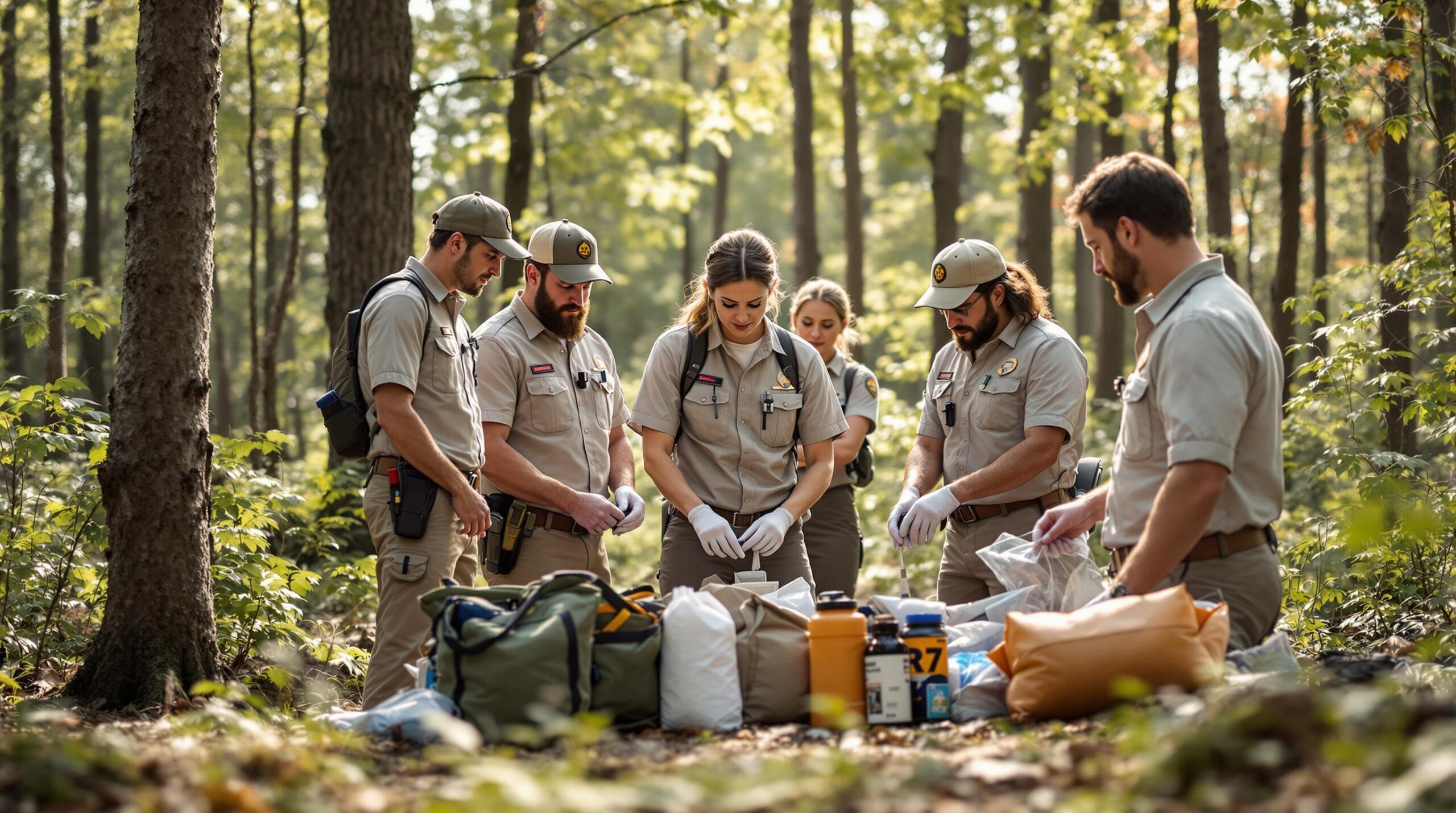Several South Carolina state parks recently presented a range of nature-focused programs designed to enhance emergency preparedness and sustainability in outdoor environments. The gatherings took place before Earth Day on April 22, with events staged between April 15 and April 21. Visitors and participants explored conservation strategies, wilderness safety, and ways to lower their ecological impact. Details posted online provide an overview of these activities, which encourage continuous engagement with environmental efforts.
Myrtle Beach State Park hosted a hands-on training session on April 16, 2025, welcoming about 50 medical practitioners from Grand Strand Medical Center. A detailed summary reveals that participants reviewed protocols for emergencies such as shark bites, snake bites, and other outdoor hazards. Organizers adapted scenarios to mirror real-life challenges in wooded and coastal areas, stressing accurate and efficient responses.
Reports say these drills moved beyond classroom discussions and allowed teams to apply problem-solving methods in an authentic setting. Another account highlighted how participants made do with limited supplies, reinforcing quick thinking under pressure. The teams practiced key procedures for treating injuries, preventing hypothermia, and identifying safe evacuation options.
One notable exercise involved an anaphylaxis scenario, calling for rapid action using only available resources. “This was a situation of a woman on the beach, she was going into anaphylactic shock, and so they had to use the tools that this woman may have had in her backpack to create the surgical airway,” said Bailey Spencer of Grand Strand Medical Center ER. According to observers, such hands-on simulations help raise confidence among future responders.
While some references labeled the April 16 gathering as “Wilderness Day,” Myrtle Beach State Park did not officially hold an event on April 22. Instead, the park’s focus remained on those hands-on training exercises, which encouraged creative approaches to first aid in partnership with medical professionals. No further large group programs appear on the immediate schedule, though visitors continue to enjoy the park’s natural amenities.
Other South Carolina parks reportedly introduced Earth Day-related options to promote conservation, though specific details vary by location. Organizers say the overall goal was to highlight ecological awareness and practical strategies for preserving habitats. These smaller events aimed to foster environmental stewardship throughout the region by connecting visitors with local resources.
Park facilities in different parts of the state often embrace standard eco-friendly measures. Some encourage frequent recycling practices, while others adopt approaches that protect native plants and wildlife. Officials remain open to expanding these systems as public interest in sustainability grows, linking them to broader environmental initiatives.
Authorities suggest that year-round stewardship not only benefits local ecosystems but can boost visitor engagement. Many parks use educational signage, nature walks, and seasonal events to promote a sense of shared responsibility for preserving public lands. Managers say these efforts serve as an ongoing invitation for visitors to stay mindful of conservation.
Widely accepted guidelines recommend that camping and RV park staff rehearse emergency procedures with minimal equipment, similar to the exercises seen at Myrtle Beach. Proper labeling of key supplies, clearly stated wildlife interaction policies, and updated CPR or first-aid certifications can ensure teams are equipped to handle urgent issues. Staged simulations may further refine these capabilities by offering real-world practice.
Additional standards underscore the value of wilderness medical training for staff who work in remote settings. A scouting guideline outlines how youth programs prepare participants for emergencies, while another resource suggests the same importance for camp personnel. Observers note how such lessons often enhance both response times and safety outcomes in natural environments.
Emergency preparedness for campground and RV park teams is widely seen as beneficial beyond official park programs. Experts recommend regular drills that develop creative problem-solving skills, such as using available items on-site to help stabilize an injury or relieve unexpected allergic reactions. Establishing first-aid stations in clearly marked locations and drafting a concise plan for wildlife or weather emergencies can reinforce cohesive responses when critical moments arise.
Equally, year-round environmental initiatives may increase visitor satisfaction by mixing outdoor recreation with ecological awareness. Operators often provide recycling options, promote water conservation, or arrange eco-focused events to encourage guests to care for the natural setting. Ongoing reminders about responsible camping can foster a culture of preservation that extends well beyond a single Earth Day observance.


